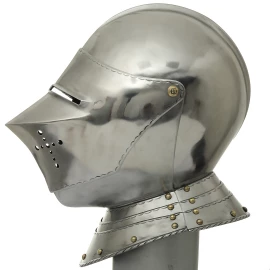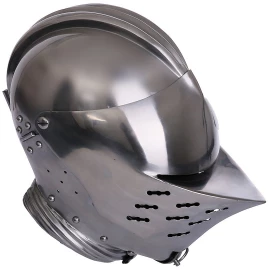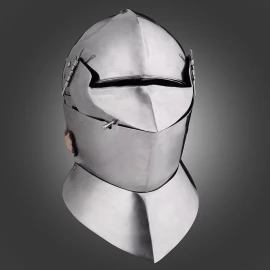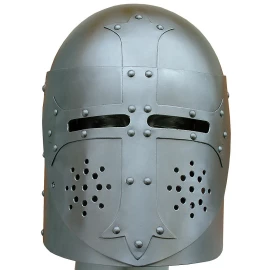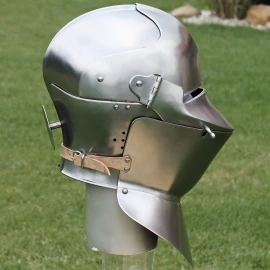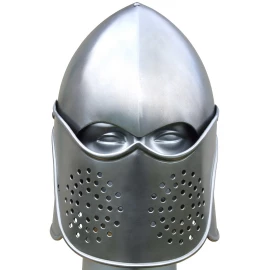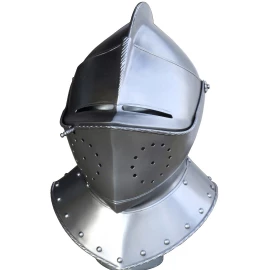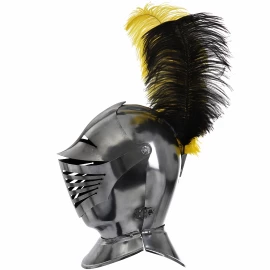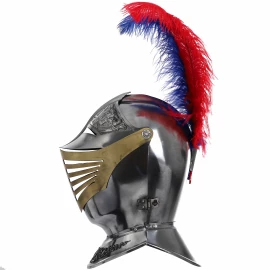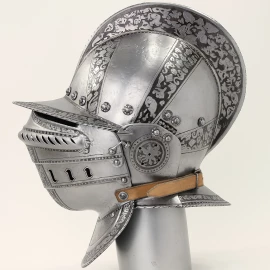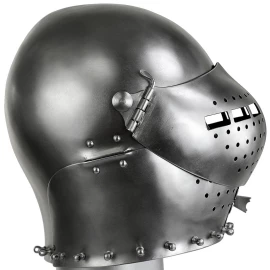Armets, Visor helmets
Filter products

Armets, Visor helmets
The typical armet consisted of four pieces: the skull, the two hinged cheek pieces which lock at the front, and the visor. A multi-part reinforcement for the bottom half of the face, known as a wrapper, was sometimes added, and its straps attached to a metal disc at the base of the skull piece called a rondel. It reached its height of popularity during the 15th and 16th centuries when knights in medieval Europe wore plate armor into battle. Movable face and cheek pieces allowed the wearer to close the helmet, thus fully protecting the head from blows. Armets have often been confused with close helmets, and the two names can now be used almost interchangeably when referring to either form of helmet. Close helmets had a full visor and bevor (a chin/neck guard); the visor pivoted up and down by means of bolts attached to the side of the skull piece. Slightly different in design, armets had hinged cheek pieces which opened at the front of face backward. Note the similarities between the armet above and the close helmet to the lower left.

